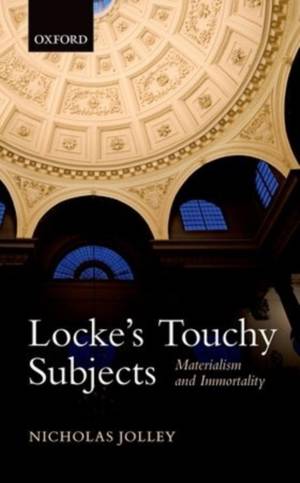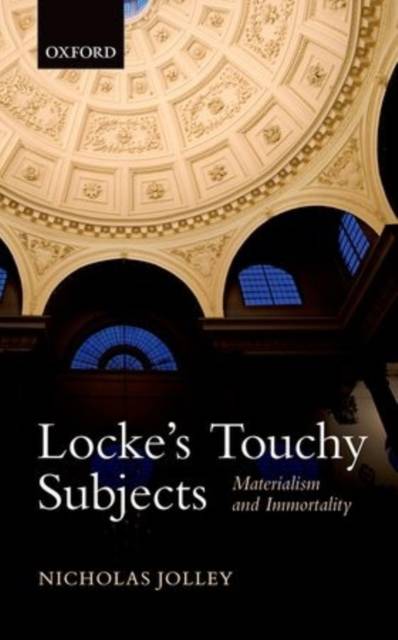
Je cadeautjes zeker op tijd in huis hebben voor de feestdagen? Kom langs in onze winkels en vind het perfecte geschenk!
- Afhalen na 1 uur in een winkel met voorraad
- Gratis thuislevering in België vanaf € 30
- Ruim aanbod met 7 miljoen producten
Je cadeautjes zeker op tijd in huis hebben voor de feestdagen? Kom langs in onze winkels en vind het perfecte geschenk!
- Afhalen na 1 uur in een winkel met voorraad
- Gratis thuislevering in België vanaf € 30
- Ruim aanbod met 7 miljoen producten
Zoeken
Locke's Touchy Subjects
Materialism and Immortality
Nicholas (University of California, Irvine) Jolley
Hardcover
€ 108,45
+ 216 punten
Omschrijving
Nicholas Jolley shows that the mind-body problem and the nature of personal immortality are more central to Locke's philosophy than has been realized. He argues that Locke takes up unorthodox positions in both cases, and holds that Locke's criticisms of Descartes were controversial responses to challenging metaphysical and theological issues.
Specificaties
Betrokkenen
- Auteur(s):
- Uitgeverij:
Inhoud
- Aantal bladzijden:
- 160
Eigenschappen
- Productcode (EAN):
- 9780198737094
- Verschijningsdatum:
- 30/04/2015
- Uitvoering:
- Hardcover
- Afmetingen:
- 223 mm x 148 mm
- Gewicht:
- 322 g

Alleen bij Standaard Boekhandel
+ 216 punten op je klantenkaart van Standaard Boekhandel
Beoordelingen
We publiceren alleen reviews die voldoen aan de voorwaarden voor reviews. Bekijk onze voorwaarden voor reviews.









